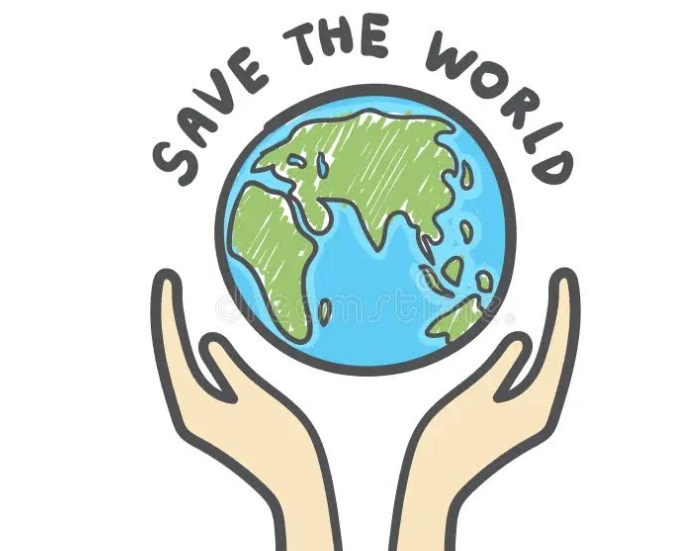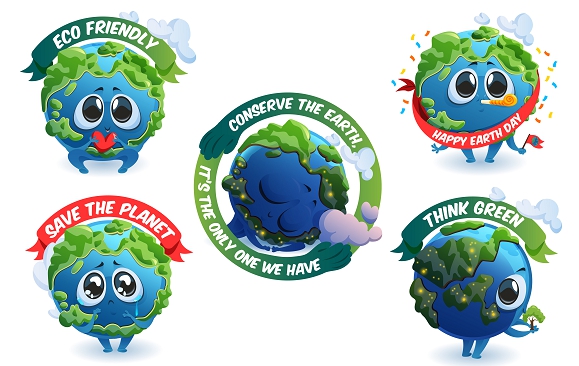 This compelling Earth Day article highlights the urgency of the climate crisis by linking recent disasters—the unprecedented wildfires in Los Angeles and the catastrophic earthquake in Myanmar—with the broader context of global warming. The piece emphasizes 2024 as the hottest year on record and warns of worsening conditions unless immediate global action is taken. While the article maintains a passionate tone, only grammatical errors have been corrected, without altering the original phrasing or structure. [Editor’s Note]
This compelling Earth Day article highlights the urgency of the climate crisis by linking recent disasters—the unprecedented wildfires in Los Angeles and the catastrophic earthquake in Myanmar—with the broader context of global warming. The piece emphasizes 2024 as the hottest year on record and warns of worsening conditions unless immediate global action is taken. While the article maintains a passionate tone, only grammatical errors have been corrected, without altering the original phrasing or structure. [Editor’s Note]

Our earth is in a state of emergency—and we can’t afford to ignore the signs any longer. From the sweeping wildfires in Los Angeles to the catastrophic earthquakes in Myanmar, it’s clear that our planet is unraveling. The year 2024 shattered climate records, cementing itself as the warmest year in human history. This isn’t just coincidence—it’s a clear consequence of decades of unchecked greenhouse gas emissions, deforestation, and exploitation of the Earth’s resources. The destruction we are witnessing is not a distant threat; it is unfolding right now, and human lives are at stake if we do not act now.
Inferno in the City of Angels: LA Wildfires Rage Through Winter Like Never Before
In January 2025, Southern California was hit with some of the worst wildfires in recent memory. The fires erupted in the middle of winter, scorching vast stretches of land from the San Gabriel Mountains to residential neighborhoods in Los Angeles. Fueled by relentless Santa Ana winds and a drought, the fires burned over 150,000 acres, destroying hundreds of homes and leaving cities in smoke and ash.
Experts say that what once was a seasonal threat has now become a constant danger. Years of rising temperatures, exacerbated by climate change, have dried out vegetation and extended fire seasons. The climate we are entering is not only hotter—it is more violent, more destructive, and more deadly. And it is not just California, as Australia, Greece, Canada, and other parts of the world have seen an increase in wildfire activity in recent years.
For many Californians, the fires are more than a news headline; they are a terrifying reality. Thousands were evacuated, schools closed, and air quality plummeted to dangerous levels. Emergency services were stretched to their limits. If this level of destruction can happen in January, what does the summer of 2025 hold? The truth is devastating, and it is a clear sign that climate change is turning the planet’s ecosystems against us.
Earthquake Devastates Sagaing: Infrastructure Collapses Amidst Humanitarian Crisis
As if the fire wasn’t enough, the ground itself turned against Myanmar. On March 28, 2025, a catastrophic 7.7 magnitude earthquake struck the Sagaing Region, with its epicenter near Mandalay. This was the most powerful earthquake to hit Myanmar in over a century, causing widespread destruction across multiple regions.
Thousands of buildings collapsed, including homes, schools, hospitals, and religious structures. In Sagaing City, nearly 90% of buildings were destroyed, and the Ava Bridge—a vital connection between Sagaing and Mandalay—was among the many infrastructures that collapsed. The human toll was staggering, with over 3,600 confirmed dead and more than 5,000 injured.
The tragedy was made worse by ongoing political instability. Even though a ceasefire had been declared, military actions continued, delaying relief efforts and making the crisis worse. Humanitarian organizations reported that aid was not distributed evenly, with some areas getting less help than others.
The destruction of infrastructure, combined with limited access to aid, left millions in dire need of assistance. The situation in Sagaing serves as an important reminder of how much natural disasters expose the vulnerability of communities, especially when compounded by political and logistical challenges.

The Year the Earth Got Too Hot: 2024 Marks a Turning Point for the Planet
In a world filled with alarming climate data, one fact stands out: 2024 was officially the hottest year on Earth since global records began. Across every continent, temperatures soared beyond what scientists had predicted. Polar ice caps melted at unprecedented rates. Coral reefs bleached and died. In countries from India to Spain, people suffered through non-stop heatwaves, while crops dried up in the fields.
The global average temperature rose nearly 1.5°C above pre-industrial levels, crossing a threshold that scientists have long warned would bring catastrophic consequences. And we’re not talking about theoretical risks anymore—we are living in those consequences.
Climate models show that unless we drastically reduce carbon emissions, the world is on track for 2.5 to 3 degrees of warming by the end of the century. That means more fires, more floods, more storms, and more food shortages. It’s a vicious cycle, and we are getting closer to it with each day of inaction.
The Future is in Our Hands: A Global Wake-Up Call to Act Now Before It Is Too Late
So, where do we go from here? The answer is simple, yet demanding: we must act now. The Earth’s systems are unraveling, but we still have the tools and the time to reverse course. Every country, company, and individual must be part of the solution. We all need to work together.
Governments need to treat climate change like the emergency it is. That means investing in clean energy, ending fossil fuel subsidies, protecting natural habitats, and implementing stricter environmental regulations. The private sector must take responsibility for its emissions, shift toward sustainable practices, and be held responsible for greenwashing and environmental harm.
And we, as individuals and citizens, must stop seeing climate change as someone else’s problem. It affects every single one of us. Whether it’s reducing our plastic use, conserving water, using public transportation, or supporting climate-focused policies and leaders—every action counts.
We all must rise to this moment—before the moment passes us.
Honoring Earth Day: Small Actions, Big Impact
April 22, 2025 is more than just a date—it’s a wake-up call. Earth Day 2025 is fast approaching, and with it comes a powerful reminder: our planet is fragile, and it’s up to us to protect it.
From melting glaciers to suffocating oceans, from wildfires raging across continents to species vanishing forever—the signs are everywhere. The Earth is not just whispering anymore. It’s shouting.
And yet, there is hope.
Organizations like EarthDay.org, the World Wildlife Fund, and The Nature Conservancy are leading the charge—some of the many organizations leading the change, fighting for cleaner air, protected wildlife, and a future we can still save. But they cannot do it alone. We all have to come together and contribute.
We can all speak up, vote for the planet, and inspire others to care. Because when millions act together, change becomes unstoppable.







